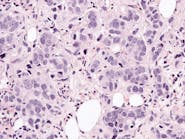A retrospective analysis of an observational study presented at the Society of Hospital Medicine (SHM) Converge conference reveals that the need for intensive care unit (ICU)-level care in patients with suspected infection is not a definitive indicator for sepsis.
“Prognostic Ability of Cellular Host Response Test in Diagnosis and Risk Stratification of Patients with Suspected Infection in Need of ICU-Level Care” details a five-year analysis of suspected infection patients at Our Lady of the Lake Regional Medical Center (OLOLRMC) in Baton Rouge, La. In comparing ICU level of care (LOC) to results of a cellular host-response test to stratify septic patients, researchers found that ruling out sepsis based on ICU level of care would have missed 57% of the patients who were ultimately diagnosed as sepsis.
This retrospective study compared the accuracy of ICU LOC and a cellular host-response test (IntelliSep) to determine which risk stratification approach is most accurate in predicting sepsis using data from 730 adult patients with suspected infection who presented to the ED. Researchers demonstrated in this study that:
· If a provider used “no need for ICU LOC” as an indicator to rule out sepsis, 57% of patients who went on to develop sepsis would have been missed and 30% of sepsis deaths were in this subpopulation.
· If a provider used IntelliSep Band 1 as an indicator to rule out sepsis, only 5% of patients who went on to develop sepsis would have been missed and 0 sepsis deaths were in this subpopulation.





